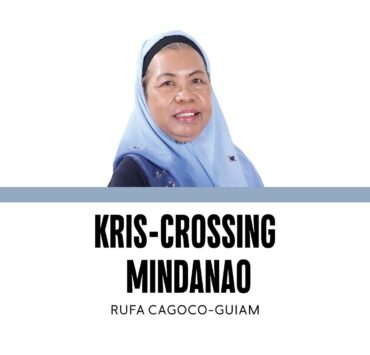Multilingualism

I was asked recently to help redirect a K-10 (kindergarten to Grade 10) school, with plans for Grades 11 and 12 (senior high school).
During my first tour of the school some months ago, I noticed the kindergarten classrooms had prominent signs posted on the blackboards: “This is an English-only speaking classroom.”
I was startled and asked what that was all about, and the teachers said it was a policy imposed by the previous administration and that parents, many of whom were overseas workers, wanted that policy.
Under the Enhanced Basic Education Act of 2013 (Republic Act No. 10533), this “English-only” policy could have been challenged on legal grounds because the law mandated the use of the mother tongue from kindergarten to Grade 3—the mother tongue not necessarily Filipino and certainly not English—based on studies showing that children learn more efficiently using their mother tongue. This applied to arithmetic, reading, and writing, including learning English.
The mother tongue policy ran into many snags, including the limited number of teaching materials. In 2024, RA 12027 was signed into law, discontinuing the mandatory mother language policy, allowing it only as an option.
In my almost 50 years of teaching, I’ve favored greater use of Filipino (Tagalog) as a national language, but I also see the importance of mother tongue teaching, especially for promoting indigenous cultures. I was aware of complaints from upper-class Filipino families about the difficulties their kids had with Filipino for many reasons, such as it being allegedly imposed by Tagalogs (“Manila imperialism”).
But let’s admit, too, that the class factor included looking down on Tagalog-based Filipino. Some families, especially in Cebuano-speaking areas, prefer using Cebuano, followed by English, and then Tagalog.
In effect, we see growing multilingualism, but with a hierarchy. I’ve observed that in Metro Manila—at family reunions, office meetings, and even corporate board meetings—people chat in a mix of Tagalog and English before a meeting starts, then switch to predominantly English when discussing “official” matters, and back to Taglish during breaks and meals.
There seems to be a growing acceptance of languages other than English, languages from the Philippines, as well as foreign languages, for diverse reasons. I favor multilingualism from a very early age, from birth if I might be more drastic. The best ages to pick up a new language are from early childhood, to master pronunciation and “native language” fluency. That needs to continue to pick up the finer points of language, including being able to communicate with fellow Filipinos, whether Cebuano, Manobo, or whatever one’s ethnicity may be.
I’m finding more and more Filipino adolescents and young adults raised in Metro Manila who regret that their parents did not encourage them to learn their ancestral language, which is not only cultural heritage but also encodes norms and values. I sometimes wonder if our moral difficulties in governance and citizenship might be rooted in our inability to think and express those values in local languages.
Multilingualism should include options for learning languages outside the Philippines, especially from Southeast and East Asia. You’ll find “cluster learning” facilitates matters—it’s easy to pick up Bahasa Indonesia, the language of the world’s fourth most populous nation, and Bahasa Malay, actually the “original” language and source of Bahasa Indonesia. Then there’s the East Asian cluster: Chinese, Japanese, Korean and, if you’re already at it, Vietnamese. Shuttling across those languages may be a bit more difficult than Indonesian and Malay.
Children of Filipinos working overseas also have the advantage of learning languages in their host countries, a plus factor for higher education and for jobs, plus, quite simply, a “world literacy” that is world smart.
My point is that multilingualism should be seen as part of cultural enrichment and not as “English only” as a way to get a job abroad. We all know that compulsory English is haphazard, training Filipinos to take orders from bosses rather than to innovate, to think for themselves, or to articulate and express their thoughts.
I had a recent visitor who teaches English to children in Spain, and he says a compulsory English policy would be unacceptable there because lower-income students would be stigmatized for their “poorer” English.
Oh, one more thing, I hear parents hoping that an English-only policy will improve their children’s chances of getting into the University of the Philippines for college. And yet, I hear parents from “good” schools, where English dominates, whining about not hurdling the UP College Admission Test or Upcat.
Simple explanation: Upcat is heavily Filipino, for all subjects.


















